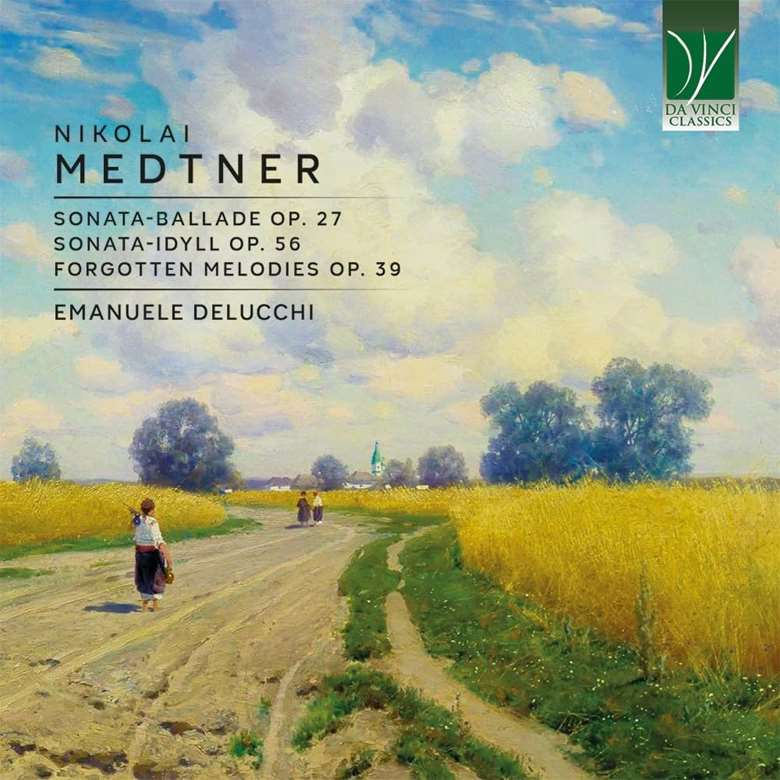Medtner: Sonata-Ballade, Sonata-Idyll, Forgotten Melodies
Bryce Morrison
Friday, May 23, 2025
'Emanuele Delucchi’s performances burn with conviction, affirming Medtner as a recondite genius beyond reductive labels'

If, as Emanuele Delucchi declares, it would be unrealistic to speak of a ‘Medtner renaissance’, interest in his music has at last broadened to include many enthusiasts as well as pianists beyond the composer’s native Russia. Today we can celebrate pioneering performances and recordings, most of all by Edna Iles, Hamish Milne, Marc-André Hamelin and Geoffrey Tozer. Medtner’s music may remain a specialist corner of the repertoire, but he is no longer a forlorn figure.
Opening with the Sonata-Ballada, Delucchi captures the essence of a work whose title declares the best of all worlds, suitably capacious for both discipline and freedom, for focus and fantasy, creating a mesmeric sense of fluctuating oppositions, of a struggle between dark and light. No such ambivalence characterises the second book of Forgotten Melodies, from ‘Primavera’ – which, to quote Hamish Milne, opens ‘like a mountain torrent in dazzling sunlight’ – to ‘Meditazione’, which clouds such ecstasy with a darker, powerfully morbid view of experience. The ‘Romanza’, too, offers evidence of Medtner’s rapid mood swings, its unsettling tonality blossoming into something approaching gaiety. The violent outcry of the ‘Sonata tragica’ is calmed by a quote from the preceding ‘Canzona matinata’.
Emanuele Delucchi’s performances burn with a special conviction. For him there are no doubts concerning Medtner’s stature, a recondite genius whose passion and enigma make popular epithets such as a ‘Russian Brahms’ and, more crudely, ‘Rachmaninov without the tunes’ entirely beside the point. Excellently recorded.
This review originally appeared in the SUMMER 2025 issue of International Piano – Subscribe Today









